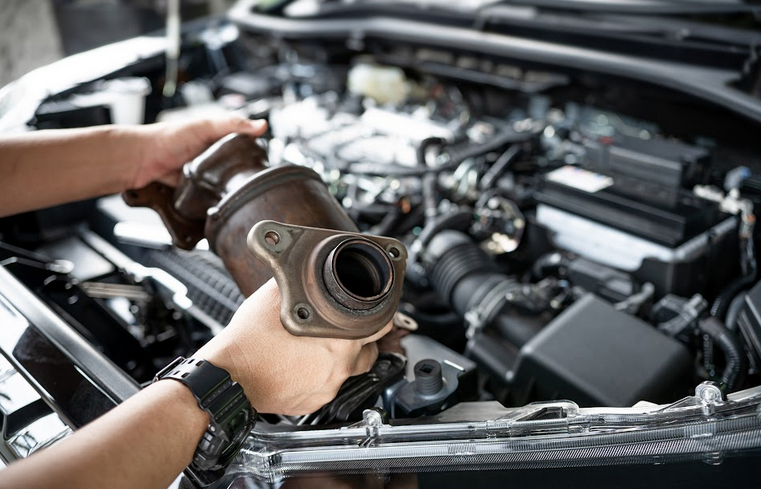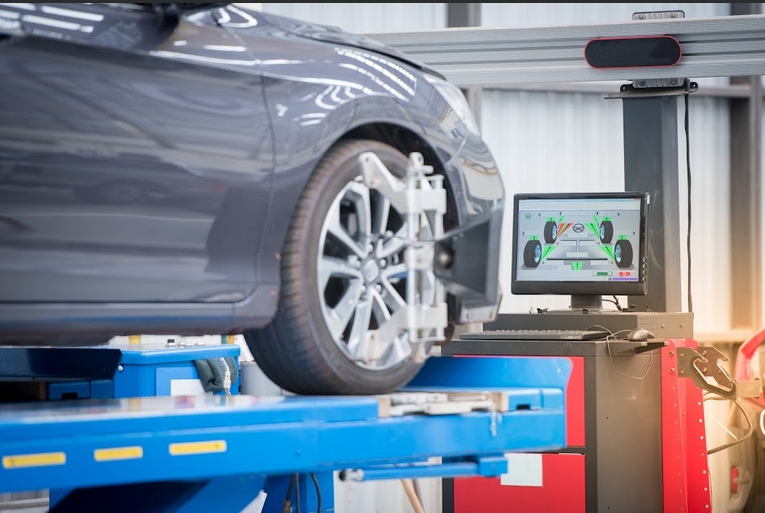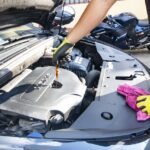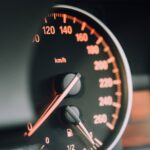Are you looking to improve your car’s fuel efficiency and performance? Typically, many people understand the importance of ensuring their vehicles are in good working order to do this. Still, some may not recognize the ease of making minor adjustments that can significantly impact them.
Keep in mind that your cars are complex machines with intricate parts working together to produce results. However, several factors come into play regarding getting optimal performance from them. It isn’t just about ensuring the engine is running correctly; other elements such as tire pressure, spark plugs, air filters, the necessity of cat converters, and even driving habits can also influence how efficiently a car runs.
That said, this article will look at specific issues related to car maintenance that may be causing problems with fuel efficiency and overall performance. Read on to learn more.
1. Size And Weight Of The Vehicle
Vehicle size and weight have a significant impact on fuel efficiency and performance. Typically, heavier cars require more energy to move, meaning they use more fuel than lighter models. On top of that, smaller vehicles tend to be more aerodynamic, so air resistance affects them less than larger models.
Additionally, the increased mass of bigger cars means their engines must work harder to achieve similar speeds as those reached by smaller ones with lesser effort. As a result, heavier automobiles are typically less efficient and powerful when compared with lighter models.
2. Catalytic Converter
One of the most important things that affect a car’s fuel efficiency and performance is its catalytic converter. This part of the exhaust system helps reduce emissions by filtering byproducts in your car’s exhaust and reducing harmful gases like nitrogen oxide. It also helps improve engine performance and fuel economy by reducing back pressure in the exhaust system, which increases airflow to the engine.
The catalytic converter uses precious metals such as platinum, palladium, and rhodium as catalyst agents. Over time, catalytic converters can become clogged or damaged due to excessive heat or lack of maintenance leading to decreased performance and reduced fuel efficiency. The only way to fix this issue is to replace your existing catalytic converter with a new one.
3. Engine Issues
A faulty engine can greatly impact your car’s fuel efficiency and performance. Pay attention to warning signs, such as decreased power, difficulty starting the engine, smoke coming out of the exhaust pipe, increased oil consumption, and more.
If you notice any of these symptoms in your vehicle, it is strongly recommended that you have it checked by an experienced mechanic immediately. Neglecting to do so could cause significant damage to your engine, which may not be able to be reversed. Additionally, failing to address faulty components can lead to further issues with other car parts.
4. Tire Problems
Another problem that can affect your car’s fuel efficiency and performance is tire or alignment problems. It’s vital to ensure that your vehicle’s tires are properly inflated for them to perform optimally.
Having an alignment done regularly at a mechanic shop is also essential to keep your car running smoothly. Improper wheel alignment causes poor handling and reduced road grip, leading to increased wear and tear on the suspension system and higher maintenance costs. Additionally, misaligned wheels cause more resistance against the road surface resulting in decreased fuel economy.
5. Type Of Oil
The type of oil you use in your car can drastically affect its fuel efficiency and performance. The right oil helps keep the engine clean and lubricated, while the wrong one could cause it to seize up or run too hot.
Here are some things to consider when choosing an oil:
- Weight: Oils with lower viscosity typically provide better fuel economy than those with higher viscosity.
- Synthetic vs. Conventional: Synthetic motor oils are more expensive but last longer and provide more excellent protection for modern engines than conventional oils.
- Manufacturer’s Recommendation: It’s essential to check your owner’s manual for the manufacturer’s recommendation about which oil is best for your car.
When selecting an oil for your car, pick one that meets these criteria to ensure maximum fuel efficiency and optimal performance.
6. Aerodynamic Drag
Aerodynamic drag occurs when air flows around the vehicle, creating resistance as it moves over its surface area. The more resistant the airflow, the greater the force of drag made. To reduce this drag, manufacturers have designed cars to be sleeker with smooth surfaces that create less turbulence for airflow. Moreover, many vehicles now incorporate spoilers or splitters, further reducing aerodynamic drag by disrupting airflow across the car’s body.
In addition to reducing drag, these design elements also help improve overall fuel economy and performance by allowing air to move faster around the car. As a result, engines don’t need to work as hard to reach higher speeds, thus saving gas in the process.

7. Inadequate Maintenance
Poor maintenance can significantly impact your car’s performance and fuel efficiency. Neglecting regular oil changes, brake inspections, and other routine upkeep are the most common ways to reduce how well your vehicle runs. If you don’t change the oil in your engine regularly, it will begin to break down faster than usual. This causes friction that leads to increased wear-and-tear as well as decreased power output from the engine.
Furthermore, failing to perform required tune-ups can affect fuel economy and performance since faulty spark plugs or an imbalanced air/fuel ratio decreases overall efficiency. Keep up with all recommended maintenance procedures to get the most out of your vehicle and ensure it continues running smoothly for years to come.
8. Style Of Driving
Your driving style significantly impacts your car’s fuel efficiency and performance. Accelerating quickly or braking hard can consume more fuel than necessary and wear down the brakes faster. That said, when you accelerate, gradually minimize how much fuel is used. It’s also best to keep a steady speed while driving to help reduce the acceleration needed throughout your journey.
On top of that, consider using cruise control when it’s available. This helps maintain a consistent speed, saving fuel over time compared to adjusting it manually.
9. Turbos
Turbos are a great way to increase your car’s fuel efficiency and performance. They work by forcing more air into the engine, which results in improved combustion and increased power output. Turbos can be added to existing engines or installed as part of an aftermarket upgrade package. Installing one correctly is vital for optimal performance, so it’s best to entrust this job to a professional mechanic who knows how to do it right.
When installing a turbocharger, you should also consider other modifications, such as changing the fuel injectors or upgrading the cooling system. Additionally, if you plan to use your turbocharged car for racing purposes, consider installing an exhaust system specifically designed for these vehicles since standard exhaust systems won’t hold up under high-stress levels from repeated acceleration and deceleration.
10. Neglecting To Warm Up The Engine
Failing to warm up your vehicle can also harm fuel efficiency and performance. From a mechanical perspective, if the car isn’t warmed up, cold oil could circulate through the engine, which means it’ll take longer for all components to reach their desired operating temperatures. This can lead to slower acceleration and decreased performance compared to if the car had been warmed up properly beforehand.
Moreover, there could be increased wear and tear on internal components without proper warm-up times since they’re not properly lubricated, leading to higher friction levels between moving parts. The added stress could eventually lead to failure or damage of certain parts over time, requiring expensive repairs or replacements.
However, experts do not recommend warming up your car by idling it for more than a minute, as prolonged idling can result in more fuel consumption and harmful emissions.
11. Driving With The Incorrect Gear
Generally, driving in a lower gear during situations requiring high speed will cause an increase in fuel consumption. This happens because the engine needs to work harder and use more energy to produce enough power to get up to speed. It also increases the number of emissions released from the exhaust system. On the other hand, driving in a higher gear with a slower speed isn’t recommended either. The key is to have the right balance between gears to ensure your car runs smoothly at any given speed while consuming less fuel to save money over time.
That said, it’s best to always stay within each gear’s recommended range of speeds to maximize your car’s efficiency and performance. The manual should have information about which gears are best for different road conditions- familiarize yourself with them to choose the most appropriate one for any situation.
Conclusion
Many factors can influence your vehicle’s fuel efficiency and performance, and it’s important to know what these are so you can watch for any issues with them. From the catalytic converter and weight of the car to spark plug problems or not warming up the engine before driving, all these affect fuel economy and performance.
Driving in the correct gear and ensuring your tires are correctly aligned are also crucial. These little details may seem insignificant, but they can greatly affect your car’s efficiency and power while you’re behind the wheel.
Lastly, taking care of your car should always be a top priority; regular maintenance checks should never go amiss. By following the insights mentioned above, you can ensure your vehicle runs smoothly and efficiently, giving you peace of mind when hitting the roads, no matter where they take you.
Related Posts












